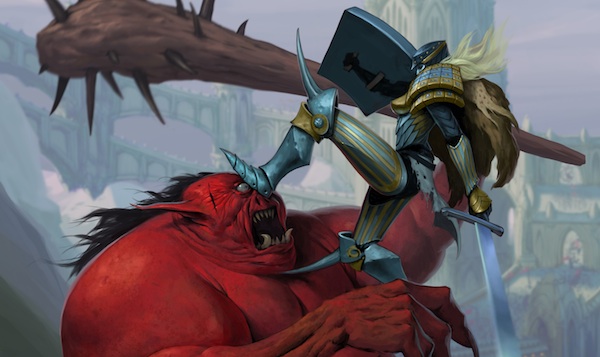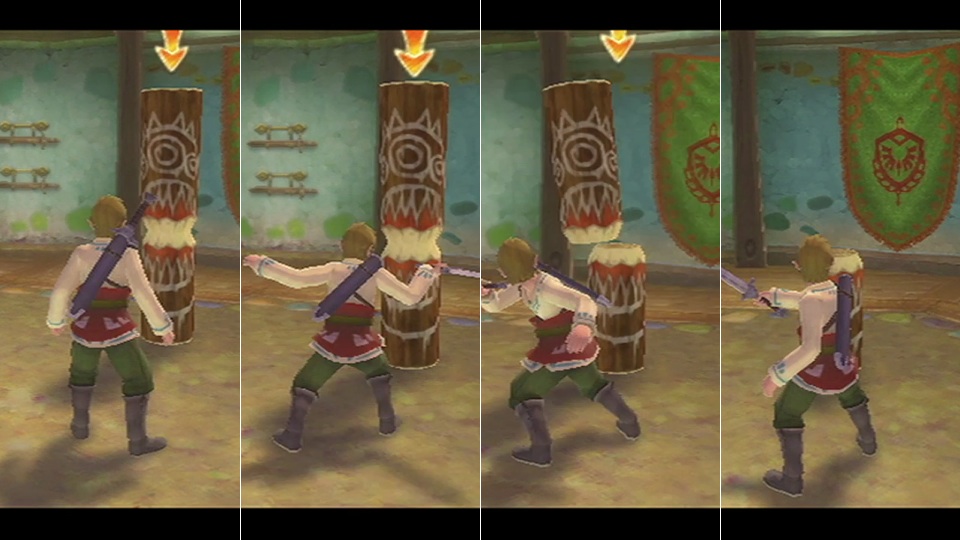This post has not been edited by the GamesBeat staff. Opinions by GamesBeat community writers do not necessarily reflect those of the staff.
Amalur is not a Skyrim-killer in terms of world building, its level design pales in comparison to Skyward Sword and the charm and humour of Fable is just not there. But it beats out these legendary franchises in what matters most; Kingdoms of Amalur makes combat fun.
If we're being honest, Skyrim's combat is a glorified slap-fest not unlike Goldeneye's vertical karate chop. A first person perspective aids bow hunting and spell accuracy, but absolutely kills the joy of stabbing dragons to death. I bet as a child you never imagined killing dragons by grinding up against their flank and flailing wildly. No, if you're like me you fantasized about crawling up the monster's back (read jungle gym) and gutting the beast with your enchanted daggers (read wooden sticks). Or maybe you imagined calling down a meteorite during a moment of controlled magic will. Either way, someone at Big Huge Games was channelling their inner child. And every time my hybrid spell-slinging, back-stabbing, war hammer using elf entered combat, the same silly grin from those days on the playground spread across my face.

But just thinking about motion controls makes me cringe. I finally got around to Skyward Sword (no thanks to Skyrim) and couldn't help but wish I was playing Amalur. Don't get me wrong, Zelda's lore, the dungeon design and art are still worlds better. But instead of feeling like a bad-ass sellsword, my wrist hurt. Instead of feeling powerful I felt like an inept child trying to finagle the ridiculous boss key into its hole, or jabbing wildly at a giant spider only to fail because of a delayed and inaccurate response from Link or worse, my own lack of skill. I felt like I was six years old again, leaning into Mario's jump or wrenching the NES controller to the right to clear the goombas.
I realized then, that instead of fulfilling a childhood fantasy like Amalur had, Skyward Sword's motion controls exchanged my imaginary sword for a real plastic stick. Instead of inspiring and enabling my inner warrior, motion controls shackled my imagination to my waggling ability. For every ounce of 1:1 immersion, I'm doused in a gallon of frustration and poor hit detection. Instead of projecting myself into Link's world as a powerful swordsman, I was tasked with overcoming my own weakness through shoddy mimicry. I wasn't pretending to kill dragons in the back yard, I was sent to fencing lessons.

My sword skills are unrivaled among the land
Because the tree branch was never about accurately mimicking swordplay, it was about the joy of make-believe. By taking out the forgiving aspect of pretending and making Link's success dependent on your wrist accuracy, the game is no longer about having fun, but about spatial and physical skill.
Amalur's combat recalls the best about being a kid at play: feeling powerful, in control, and living out a fantasy. While Skyward Sword is mired in the frustration of childhood; feeling limited, unskilled, and struggling to perform basic tasks.
Do you see the difference? Motion controls are more akin to a civilian firing a pistol at the firing range, reminded of their inadequacy in firearm combat. Amalur does what a videogame should, like how Call of Duty tricks you into thinking you're a badass marine. Both experiences have their place in life, but only one is best suited for the medium of videogames.
